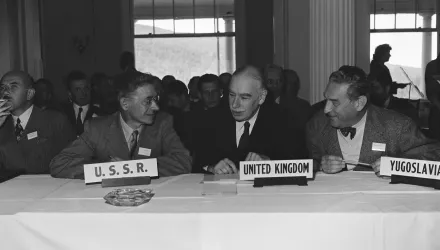International Security is America's leading peer-reviewed journal of security affairs.

Summary
Conventional wisdom sees nuclear brinkmanship and Thomas Schelling’s pathbreaking “threat that leaves something to chance” as a solution to the problem of agency in coercion. If leaders cannot credibly threaten to start a nuclear war, perhaps they can at least introduce uncertainty by signaling that the decision is out of their hands. But human emotions can introduce chance into bargaining in ways that contradict the expectations of the rational cost-benefit assumptions that undergird deterrence theory.
Reid B. C. Pauly and Rose McDermott, "The Psychology of Nuclear Brinkmanship," International Security 47, no. 3 (Winter 2022/23): 9–51, https://doi.org/10.1162/isec_a_00451.





